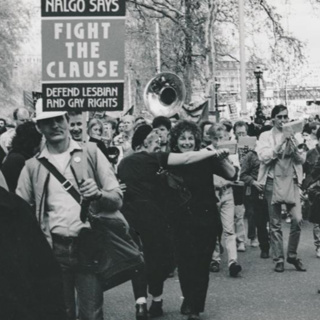
160. Managing power, coping with weakness
Salisbury had a fairly accurate view of just what Britain could and couldn’t do on its own, given the limitations on British power itself, but also the blocks caused by domestic political opposition . He equally had a clear notion of just what massive damage the new generations of weapons might do in a war in which both sides had them, essentially a war between great powers. Finally, he also understood that the point of empire wasn’t sentiment, it was business. All this made him deeply suspicious of the Jingoist spirit of many who wanted to push Britain’s imperial interests ever further forward. Instead, however much the Jingoes might criticise him for it, he preferred to concede to rivals in areas where he felt no vital interest was at stake. On the other hand, where such an interest was on the table, he was more than prepared to fight. He’d decided, in particular, that given his colleagues’ fear of taking on Turkey, the best way to protect the Suez Canal, the vital link to India, was through Britain’s control of Egypt. But Egypt depended on the Nile, and that river ran through Sudan. That’s why, while Salisbury avoided war over West Africa, or over holdings grabbed by other powers in China, or with the US over the Guyana-Venezuela border dispute, he stood firm over Sudan and sent Kitchener in there to win his victory of Omdurman and then against the remaining Mahdist forces as he swept southwards. Control of the Nile Valley was a goal he felt Britain could achieve and which would be key to its imperial interests. So it was worth fighting for. Even, as we’ll discover next week, when that brought him into conflict with a great power. Illustration: The main gate to the munitions depot in Quingdao, after the German occupation, in 1898. From the Bundesarchiv of the Federal Republic of Germany. Music: Bach Partita #2c by J Bu licensed under an Attribution-NonCommercial-No Derivatives (aka Music Sharing) 3.0 International License.
17 Sep 202314min

159. Ireland and another Balfour; Sudan and Churchill again
The running sore of British relations with Ireland was running still and just as sore. This time another Balfour, Gerald as opposed to his brother Arthur, but like him a nephew of the Prime Minister Salisbury who nepotistically appointed him, was pursuing a policy designed to address some Irish grievances, rather than simply tighten repression. That was made easier by the reduction in unrest and even of Home Rule fervour in Ireland, together with the loss of the iconic leader Parnell. Balfour felt it was legitimate to reward a quieter Ireland with concessions, while at the same time, it also helped reconcile the Irish to British power and even to undermine still further the demand for Home Rule. That, in turn, weakened the Liberals’ and Irish Nationalists’ position, since they were firmly committed to seeing an Irish Parliament recreated. Balfour would always claim, however, that these political advantages, while welcome, were never his main aim. Abroad, Britain sent a joint Anglo-Egyptian force out from Egypt to reconquer Sudan. That would complete the uninterrupted sting of British holdings or controlled territories across the whole continent of Africa, from South to North. It would also provide the opportunity, at the Battle of Omdurman, for a young lieutenant, Winston Churchill, to take part in the last significant cavalry charge in British history. Illustration: The Charge of the 21st Lancers by Edward Matthew Hale, a key moment in the Battle of Omdurman, and in the military history of then Lieutenant Winston Churchill. Public Domain. Music: Bach Partita #2c by J Bu licensed under an Attribution-NonCommercial-No Derivatives (aka Music Sharing) 3.0 International License.
10 Sep 202314min

158. Sending Wilde to the Wilderness
Henry Labouchère’s amendment of 1885 had criminalised any sexual act between men, labelling it gross indecency, an offence which was a great deal easier to prove than the older charge of sodomy. In 1895, Oscar Wilde was at the peak of his fame and acclaim, with his play The Importance of Being Earnest having had a hugely successful premier. He was also in a stormy relationship with Alfred Douglas, the son of the Marquess of Queensberry (yes, he of the rules of boxing). Queensberry had already lost his eldest son, killed it was maintained in public in a shooting accident, believed in fact to have committed suicide, following an affair with no less a man than the Prime Minister, Lord Rosebery. When Queensberry realised that another son was involved in something similar, he hit the roof. He left a card at Wilde’s club with the accusation that he was a ‘sodomite’. Wilde felt the accusation was so serious, he had to sue for libel. Sadly, his case fell apart, especially under the acute cross examination of a lawyer destined for a brilliant career in the law and in politics, Edward Carson. He defended Queensberry by setting out to show that the allegation against Wilde was true. Sadly, by doing that he provided all the evidence Wilde’s enemies needed to have him condemned in a criminal trial himself. And with that, Wilde was bankrupted and his career destroyed. “I have ruined the most brilliant man in London,” Carson is reported to have said. Certainly, he contributed. But the real blame was a law that made the unorthodox behaviour of the most brilliant man in London not just a difference to tolerate, but a deviance to persecute. Illustration: Oscar Wilde and Alfred Douglas, in a gelatin silver photo of 1893, by Gillman & Co, National Portrait Gallery P1122 Music: Bach Partita #2c by J Bu licensed under an Attribution-NonCommercial-No Derivatives (aka Music Sharing) 3.0 International License.
3 Sep 202314min

157. Triumph and Decline
Lord Salisbury had decided to serve as his own Foreign Secretary and, indeed, it was events abroad that most marked his third administration. This episode starts by looking at the great feast of Empire which was Queen Victoria’s diamond jubilee of 1897. It was Britain at its peak of might, with the biggest empire the world had ever seen, wealthy, powerful, and with a people broadly united behind the Queen, her Empire and her government. That last bit was something that men like Salisbury, in the government, made the most of. But behind the scenes, a rather different picture was beginning to emerge, of a country whose power, while great, was already in decline. This episode looks at three widely different events, out of the many that Salisbury addressed, that suggest this was happening: the Jameson raid in South Africa, the failure to intervene in support of the Armenian Christians against ongoing massacres by their Turkish overlords, and the US support for Venezuela in a border dispute with then-British Guiana. Illustration: Dr Jameson (fourth from left) and the officers of the Jameson Raid, 1896. National Portrait Gallery P1700(20b) Music: Bach Partita #2c by J Bu licensed under an Attribution-NonCommercial-No Derivatives (aka Music Sharing) 3.0 International License.
27 Aug 202314min

156. Four fine women and two odd Churchills
Back in chapter 120, we met two extraordinary women, Mary Seacole and Florence Nightingale, who transformed the world of nursing. Now we’re looking at four more women who were just as remarkable. They took on the stronghold of the doctors, and broke in. As they did that, they also began to force open the doors of the universities. The specific task of gaining access to universities for women was taken on by another woman mentioned in this episode, and she directed yet another towards the battle for the vote. As well as the women, the episode also looks briefly at a Churchill and the strange launchpad for life he provided for another, his son. But that son is a historical giant, so strange or not, it was a launchpad that would work for him. Illustration: The Elizabeth Garret Anderson Hospital building in Euston Road, London. Photo by Luca Borghi @ (July 2011) Music: Bach Partita #2c by J Bu licensed under an Attribution-NonCommercial-No Derivatives (aka Music Sharing) 3.0 International License.
20 Aug 202314min

155. Salisbury and Science: a time of breakthroughs
Salisbury was back for his third term in office, but for now without a majority in the House of Commons. He had to form a government, and for the first time it would include Liberal Unionists as ministers. One of them, Joseph Chamberlain, surprised Salisbury by choosing to be named Secretary of State for the Colonies in preference to either of the great posts he’d been offered. It seemed that imperialism mattered more to him. With a government in place, Salisbury took the country to a general election. He won with a landslide. In this episode, however, we take a break from all that to look at some of the great breakthroughs, other than his electoral triumph, taking place at that time, specifically in the sciences. Physics was surging. So were the life sciences. So indeed was medicine, but we’ll come back to that next week, when we look at women in that male-dominated field. In particular, one man proposed a disturbingly new scientific viewpoint. That was Charles Darwin, with his highly contentious theory of evolution. One of his admirers, it turned out, was none other than the Prime Minister himself. And, even more surprisingly, when Salisbury did differ from Darwin, his argument was well-founded in science. Not something one would expect from most British Prime Ministers. Illustration: Charles Darwin, pen and ink portrait by Harry Furniis, National Portrait Gallery 6251(16) Music: Bach Partita #2c by J Bu licensed under an Attribution-NonCommercial-No Derivatives (aka Music Sharing) 3.0 International License.
13 Aug 202314min

154. A great man falls, a lesser one fades
With both eyesight and hearing fading, Gladstone couldn’t last long after his defeat on Home Rule. Though he lasted as long as he could. Even after almost the entire cabinet prevented him from blocking an increase in naval expenditure, demanded by the admirals, and which he feared would merely add fuel to the fire of an arms race, he still clung on for a while longer. Finally though, in February 1898 he went. But who would replace him? Would it be Spencer, his favoured candidate despite having opposed Gladstone over the naval expenditure? Well, Victoria didn’t even do him the courtesy of consulting him about his successor, so what he favoured didn’t matter. Might it be Harcourt, the Chancellor and ‘little Englander’ whose cautious view of imperialism was in line with thinking across the mainstream of the Liberal Party? Or would it be the Liberal Imperialist Rosebery, who’d keep the party firmly anchored to its right wing? Well, Victoria was quite an imperialist herself. Rosebery was picked. He head a short-lived, inglorious government, torn by internal dissension – Harcourt couldn’t forgive him for depriving him of a position to which he thought he was entitled – which fifteen months later simply imploded and meekly resigned, letting Salisbury form his third administration. That was the opening of a Tory decade. It was that long before the Liberals got another chance to form a government. Illustration: Archibald Philip Primrose, 5th Earl of Rosebery, by Henry T. Greenhead, published 23 October 1894, when Gladstone’s successor was a fading Prime Minister. National Portrait Gallery D39875 Music: Bach Partita #2c by J Bu licensed under an Attribution-NonCommercial-No Derivatives (aka Music Sharing) 3.0 International License.
6 Aug 202314min

153. Home Rule lost
The 1892 election had given Gladstone his chance to form yet another government and establish two new records: the only man to have been Prime Minister on four different occasions, and the oldest man ever to have held the post. He formed a government which gave the young Asquith his chance to shine in a senior position, which he certainly did. It also gave the Earl of Rosebery, dithering about it until the end, playing hard to get, blowing hot and cold, the position of Foreign Secretary and a platform, as we shall see, to go still further before long. Finally, it was a government which had some valuable achievements in its short existence. But one achievement that eluded it was the aim on which Gladstone had set his heart. He got Irish Home Rule through the House of Commons, only to see it thrown out by the House of Lords. What might have turned into a posthumous victory for Parnell, turned instead into his final failure. This episode asks to what extent that was a missed opportunity but leaves the answer to you to choose. On the other hand, the bloodshed in the 130 years since Gladstone’s second Home Rule Bill was defeated, is easy to judge. Simply, unequivocally, it is the stuff of tragedy. By no means the first in the long sad history of Anglo-Irish relations, but it would be a relief if it turned out to be the last. Illustration: William Ewart Gladstone as a senior statesman, by Harry Furniss. National Portrait Gallery 3381 Music: Bach Partita #2c by J Bu licensed under an Attribution-NonCommercial-No Derivatives (aka Music Sharing) 3.0 International License.
30 Jul 202314min





















